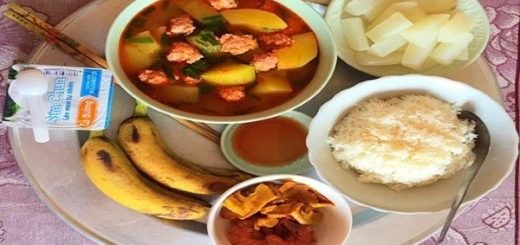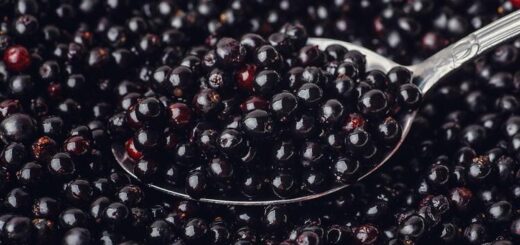How should people on a gluten diet eat during Ramadan

Gluten-Free Eating Tips During Ramadan
Before discussing how to have a gluten-free diet during Ramadan, let’s briefly answer the question of what celiac disease means in people who are sensitive to gluten.
Celiac disease, also called ‘gluten-sensitive enteropathy’, is a disease characterized by small bowel involvement. It occurs due to the inability to digest the ‘gliadin’ protein, which is part of gluten, after ingestion of gluten-containing food in sensitive individuals. Celiac disease, which is a genetic disorder, can also occur or become active after stress, pregnancy, and childbirth.
Saying that the answer to the question of whether celiac patients can fast is yes, let’s move on to what needs to be considered in nutrition while fasting. Of course, there should be no other ailment for this.
So, how should celiac patients be fed during Ramadan? Can a healthy eating arrangement, which can be called the Ramadan diet, be made gluten-free? What should people with gluten allergies eat for iftar and suhur? Healthy eating tips in Ramadan for those on a gluten diet, effective advice to minimize stomach and intestinal problems, and dietitians for those on a gluten diet and celiac patients in Ramadan are with you!
How Should Celiac Patients Eat During Ramadan?
- For celiac patients, a gluten-free diet should continue as always during Ramadan. In Ramadan, where the number of meals decreases, they should increase the number of meals in order to prevent the slowdown of metabolism.
- The list created in response to the question of how the gluten diet is can be converted into fasting for the month of Ramadan.
- Celiac and fasting do not interfere with each other. It just needs to be adapted to the diet. For celiac patients, the celiac diet protects body health, while fasting is also supportive of health.
- In the sahur, they can include a light breakfast option with cheese, eggs, lots of greens, milk or yogurt.
- By adding gluten-free bread to the sahur, they provide a feeling of fullness throughout the day.
- Half an hour before the call to prayer, they may prefer a light snack with fruit.
- As with all individuals, celiac patients should pay attention to the consumption of at least 1 liter of water in the sahur .
- In the iftar, they should start with rice or vegetable soups, take a break for 15 minutes, and then choose low-fat, light options with yogurt and salad in addition to their food choices.
- They should spread their water consumption between sahur and iftar and drink at least 2.5 liters of water a day.
- People sensitive to gluten should pay attention to exercise as well as paying attention to the menus during Ramadan in terms of celiac nutrition.
- They can prevent weight problems during Ramadan with a half-hour walk after iftar.
Suhoor
- Egg Potatoes
- 1 slice of low salt cheese
- Tomatoes, cucumbers, lettuce, parsley
- 1 glass of water Milk
- 2 slices of gluten-free bread
- 30 minutes before the call to prayer, 1 portion of fruit + 2 walnuts
Iftar
- 1 bowl of vegetable soup
- Grilled chicken/fish (120 g) up to 3 meatballs or 1 portion of legumes
- 1 glass of buttermilk
- 2 dolma (made with rice) or 1 slice of gluten-free bread
- cold cuts salad
Snack
- 2 servings of fruit
Symptoms of Celiac Disease
- The disease will not show the same symptoms in every individual, and the severity of the symptoms also varies from person to person.
- Weight loss, nausea, vomiting, abdominal pain, weakness, diarrhea, light-colored and foul-smelling stools, anemia are among the main symptoms.
Treatment of Celiac Disease
- The treatment of celiac disease is to apply a ‘gluten-free diet’.
- This diet is a lifelong diet for celiac patients and has an 80% success rate.
- The basic principle of the diet is based on the elimination of gluten-containing barley, wheat, rye, oats, and all the nutrients made in their flour.
- In summary, the treatment of celiac disease requires individuals who are negatively affected by gluten to change their diet for a long time to eliminate these negative effects.
- The goal of treatment is to get rid of the bothersome symptoms.
What Should Celiac Patients Not Eat?
- Wheat, rye, barley, and all kinds of food made from flour, bread, pasta, vermicelli, bulgur are among the foods that celiac patients should not eat.
- Oats should not be preferred due to the risk of contamination.
- Celiac patients should acquire the habit of reading labels while consuming packaged food and should not consume foods containing ‘gluten’.
- Some individuals may also be sensitive to milk. In such cases, consumption of milk and dairy products should be limited in the diet and lactose-free milk should be tried.
- Milk desserts with wheat flour, yogurt and milk soups with bulgur, meatballs with stale bread, meat dishes with bulgur, vegetables and stuffed bulgur, all kinds of desserts made from wheat flour and yufka, vermicelli, tarhana and flour soups, bulgur pilaf, börek Biscuits, pasta and boza, beer are among the foods that celiac patients should not eat.
What Should Celiac Patients Eat?
- Celiac patients can consume any gluten-free food.
- Foods made from rice and corn from the grain group are foods that celiac patients can easily consume.
- They can make their own bread with gluten-free flour, or they can choose gluten-free breads in the market.
- At the same time, gluten-free pasta and biscuits on the market are among the foods that they can easily consume in order to diversify their menus.
- Celiac individuals consume milk, yogurt, milk desserts made with rice and rice flour, red meat, chicken, fish, eggs, cheese, all kinds of vegetables and fruits, honey, jam, molasses, marmalade, rice and vegetable soups, potatoes, fruit juices and They can have tea.
- When choosing a packaged product, they should pay attention to the phrase ‘gluten-free’.











